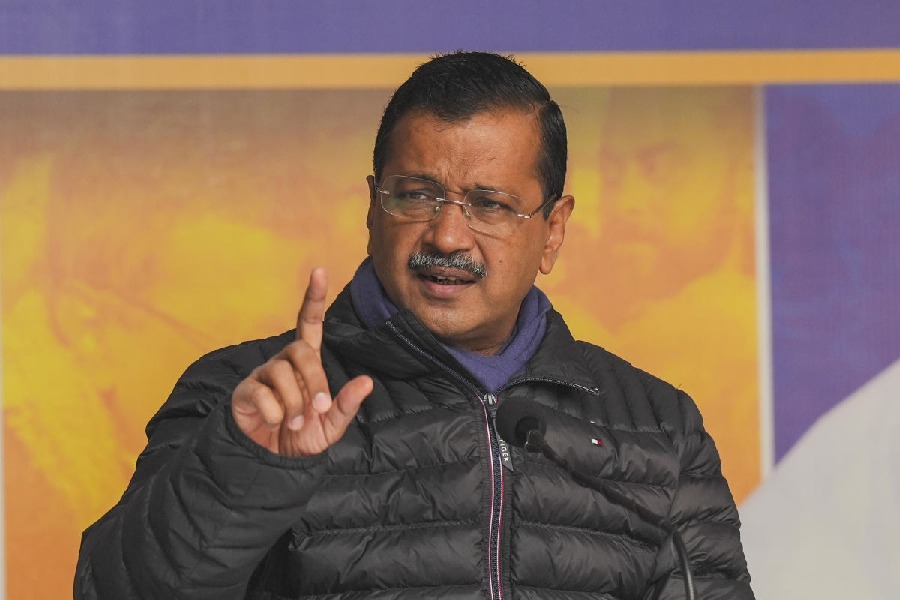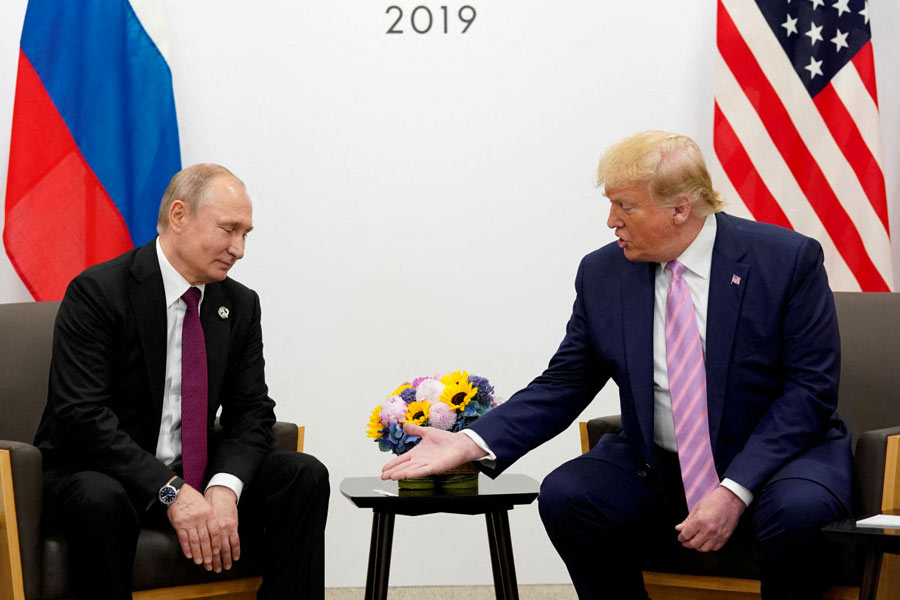In normal political times, a glowing report on the US economy just before Election Day would be a gift to the party in power and a uniform talking point for its candidates. But entering the final weekend before Tuesday’s midterm vote, President Donald Trump’s blistering message of nativist fear has become the dominant theme of the campaign’s last days, threatening to overshadow the good economic news.
This is a political bind Republicans did not envision. They spent the final months of 2017 working on a package of sweeping tax cuts they hoped could be the centrepiece of their 2018 campaign message, buttressed by a soaring stock market and a low unemployment rate. And they got what they wanted, passing a $1.5-trillion tax bill last December.
A new jobs report released on Friday highlighted the continued strength of the economy, as employers added about 250,000 jobs in October while the unemployment rate remained at 3.7 per cent, a nearly 50-year low.
But Trump, again, has upended the traditional political playbook. Candidates are frequently forced to answer for his inflammatory and baseless tweets. And at the political rallies that are becoming a daily event as the election draws closer, the President has waded into racially fraught waters, using a broad brush to paint immigrants as villainous and dangerous.
“They all say, ‘Speak about the economy, speak about the economy,” Trump said on Friday, during a rally in West Virginia. “Well, we have the greatest economy in the history of our country. But sometimes it’s not as exciting to talk about the economy.”
On the campaign trail, Republican candidates have taken a split-screen approach to Trump’s nationalist message; many, recognising its political potency with the conservative base, are continuing to embrace it.
Democrats have “open borders psychosis”, Kris Kobach, the hard-right Republican candidate for governor in Kansas, told a crowd in Kansas City, Missouri, during a rally on Friday with Vice-President Mike Pence. Earlier in the day, Senator Ted Cruz of Texas began a stump speech by boasting about the economy, but quickly shifted to a more foreboding theme closely aligned to Trump’s warnings about a migrant “invasion.”
“You mean the people of Texas want to stop the caravan?” bellowed Cruz, who is in a competitive, closely watched race against Beto O’Rourke, the fiery, youthful Democrat. The crowd responded with chants of “build the wall”.
Other Republicans, however, are straining to avoid the President’s language and focusing instead on an economy-first message.
In Winterset, Iowa, Representative David Young, a Republican in a very close race, spent the bulk of an address to voters on the strong economy and Republican job creation.
“Right now we’re seeing a real economy renaissance going on in the country,” he said. “Here in rural Iowa, the incredible things going on with our economy are quite spectacular. I just want to keep the federal government out of your way so people can work, small businesses can grow, larger businesses can hire more people, we can keep the economy growing like today.”
In campaign appearances this week, two Illinois Republicans locked in tough races in Chicago’s suburbs, downplayed the immigration issue. Randy Hultgren, the incumbent in the 14th Congressional District, did not mention Trump’s immigration speech at the White House on Thursday during a stop the following day at a metal forging plant.
Peter Roskam, a Republican who is facing his own tough challenge, told McClatchy the immigration rhetoric was not important to his district. That message “skips right past this district”, Roskam said. “This district hears that and kind of shrugs.”
A top aide to Paul D. Ryan, the retiring House Speaker, also pleaded with Republicans to tout the jobs report. “Were going to spend all day and weekend talking about the strong economy, right?” the aide, Brendan Buck, tweeted.
One problem for Republicans trying to tout the economy is that the tax cuts did not turn out to be the political windfall they envisioned. Polls showed they enjoyed only middling popularity as many Americans came to see them as a gift to the richest Americans that did little to address the problem of wage stagnation.
Some Democrats have actually weaponised the tax package against their opponents, including Danny O’Connor, a Democrat running in a tight race against a Republican incumbent, Troy Balderson, in Ohio. In the run-up to a special election in August — they are squaring off again in Tuesday’s general election — O’Connor and his backers spent more money attacking the tax cuts than Balderson and his allies spent defending it.
Traditional Republican pollsters and strategists said hewing too closely to Trump’s incendiary strategy could contain more risk than reward for candidates in the campaign’s final days. They warn of possible backlash among minority voters and college-educated whites, two groups that could be especially crucial in deciding congressional control.










